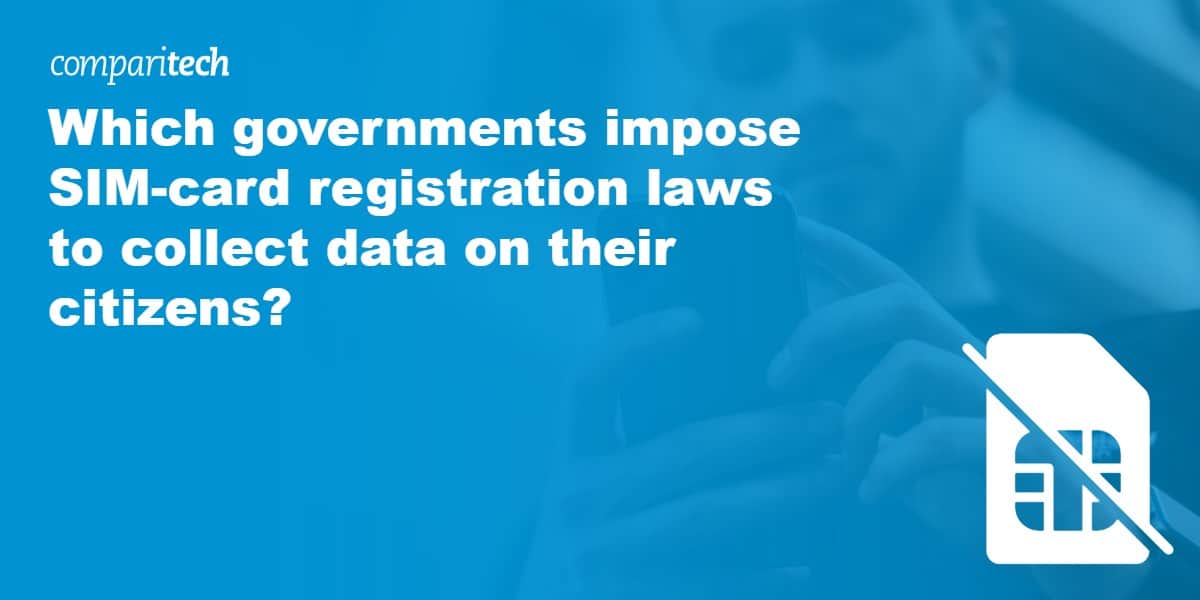Just over 5.2 billion people worldwide have mobile phones, accounting for almost 70 percent of the entire global population, according to the GSM Association.
The majority of national governments (around 160) require mandatory SIM-card registration, which means you need your real name and personal details to sign up for phone service. And over 30 of these also require biometrics, e.g. your fingerprints or a facial scan.
Just how private is mobile phone usage in each country? And how are governments using the data collected?
Here at Comparitech, we looked at a number of factors to determine where in the world SIM-card registrations are the most invasive. This includes if biometrics are required in the registration process, whether the data is stored by providers or shared with government agencies, what is (or is not) required for law enforcement to gain access to this data, for how long the data is stored, and whether any data privacy legislation protects this information.
This year’s update also included whether or not these countries have mandatory IMEI databases.
This map includes all of the countries we know of that have or do not have SIM-card registration laws. Some of these have been omitted from the overall study (with scoring and rankings) due to insufficient information on the laws and processes in place. Therefore, it wouldn’t be fair for us to include them as we cannot accurately score them for things like law enforcement access, penalties, and so on.
Please note: Due to a change in the scoring (countries with lower scores are now deemed to have more invasive SIM-card registration laws) along with the addition of another category, we haven’t compared results year on year.


No comments:
Post a Comment